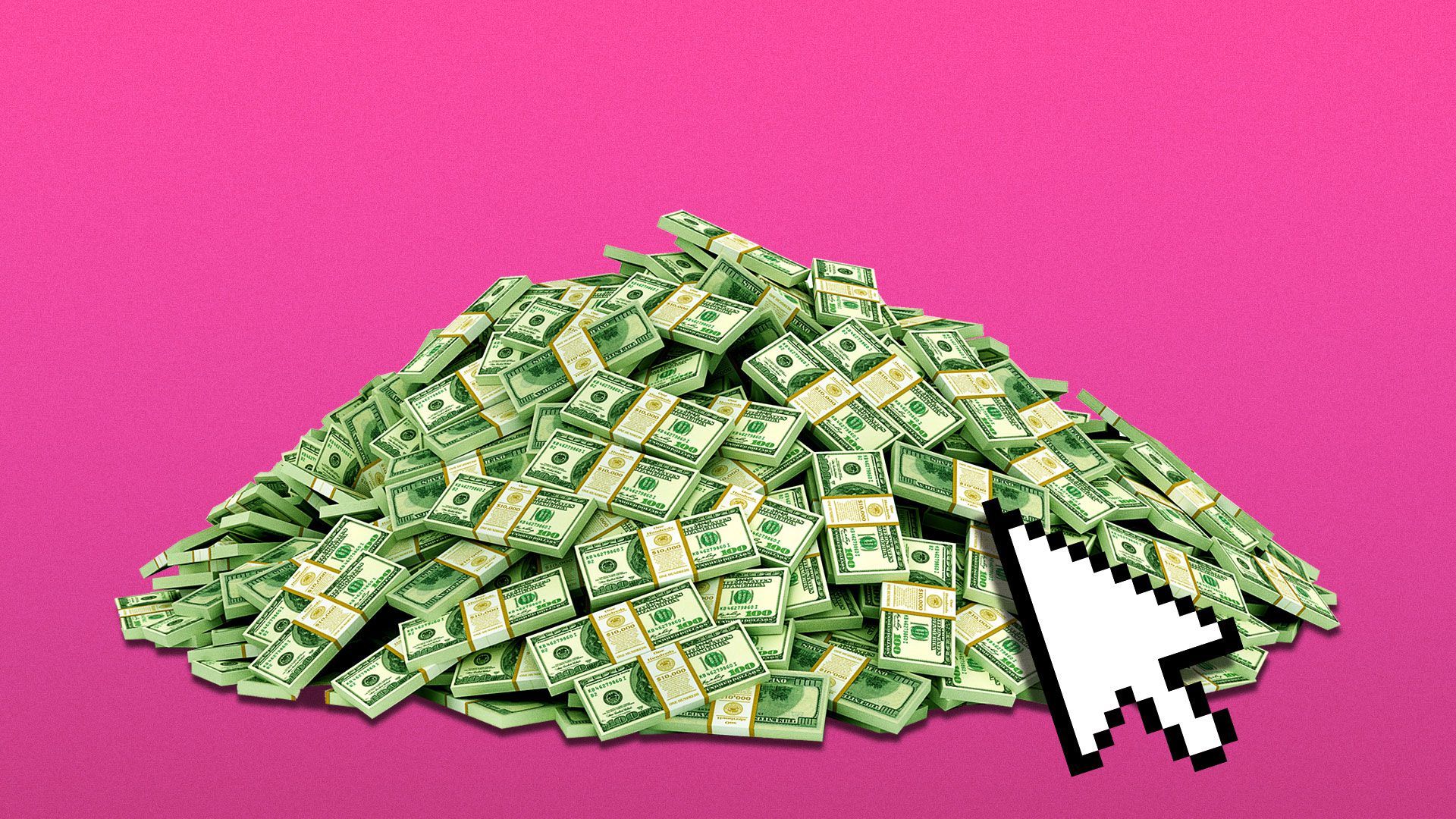The forever tech bubble
Add Axios as your preferred source to
see more of our stories on Google.

Illustration: Eniola Odetunde/Axios
Price discipline is dead. Long live the tech bubble.
The big picture: Determining "proper" tech startup valuations has always been subjective, but lately it's been more akin to throwing a dart at the ceiling than at the board.
By the numbers: Private markets are following public markets, as they're wont to do, with median valuations for early-stage and later-stage startups hitting record highs, per PitchBook.
- The pandemic is now viewed as a "heads I win, tails you lose" situation for a majority of startups. Either they benefit from trends like work-from-home, or investors are paying for expected growth post-vaccine.
- "I give up," a Silicon Valley venture capitalist told me while discussing Salesforce's $27.7 billion deal for Slack. "I could have made a solid case for Slack at one-third that amount or at even more than what Salesforce is paying, and I'm feeling the same about most of the venture deals I see getting done."
There are signs of a bubble everywhere, but that's arguably been true for years. Any "smart money" that pulled back, including early in the pandemic, looks dumb, while plenty of dumb money looks prophetic.
- Venture capital shifted years ago into a less price sensitive model, deciding it was better to overpay for everything than hold the line and miss out on a mega-win. That trend has only accelerated, particularly after the seed-stage.
The bottom line: "Value-add" has taken on increased importance when it comes to winning competitive deals, as so many investors have become price insensitive (in action, if not in words).
